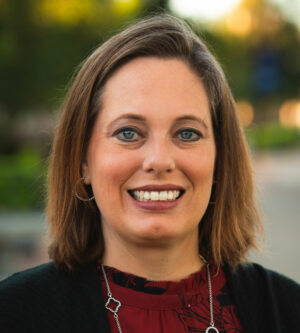 by Shannon Rains
by Shannon Rains
“That is not the way we’ve always done it.”
“We’ve tried that before; it didn’t work.”
“Let’s stick with what we know works.”
 Like many of you, I have sat in countless leadership meetings. The same agenda items seemed to find their way back, meeting after meeting, shaping the conversation like grooves worn deep into familiar ground. Ideas were offered, hopes flickered, and yet, almost without fail, someone would respond with, “Yes, but…” The writer of Ecclesiastes was right: “There is nothing new under the sun.” Perhaps he, too, once sat in a leadership meeting of a church that felt stuck—longing for movement, yet circling the same old questions.
Like many of you, I have sat in countless leadership meetings. The same agenda items seemed to find their way back, meeting after meeting, shaping the conversation like grooves worn deep into familiar ground. Ideas were offered, hopes flickered, and yet, almost without fail, someone would respond with, “Yes, but…” The writer of Ecclesiastes was right: “There is nothing new under the sun.” Perhaps he, too, once sat in a leadership meeting of a church that felt stuck—longing for movement, yet circling the same old questions.
Each fall, I teach Introduction to the Old Testament, and every time something new catches my attention. This year, I’ve been especially struck by how visible God was to Israel. They witnessed God’s power and presence: Pharaoh and his gods brought low through the plagues, the Red Sea parted, a pillar of fire and cloud leading them through the wilderness, the mountain of Sinai ablaze with glory, Moses’ face shining from his encounter with God, and the tent of meeting filled with God’s presence.
At the foot of Sinai, God called them into a new identity: “You will be my treasured possession… a kingdom of priests and a holy nation” (Ex. 19:5–6). God offered them a vision for their future—one marked by belonging and holiness—and asked only that they “obey fully and keep my commands.”
Yet Israel’s stubbornness seemed to match the intensity of God’s revelation. They grumbled for Egypt, remembering its food but forgetting their slavery. When ten spies returned with a fearful report, the people cried out, “We should choose a leader and go back to Egypt” (Num. 14:4). They never did—but neither did they enter the promised land. The generation that saw God’s power firsthand died in the wilderness, undone not by enemies, but by unbelief.
We might say that God invited Israel to live with a growth mindset—to trust that their identity could be shaped by God’s presence—but they chose a fixed mindset instead. Fear felt safer than faith.
Psychologist Carol Dweck describes the fixed mindset as believing that ability is static—what one knows or can do is already set. In contrast, a growth mindset embraces learning, adapting, and growing through effort and experience. In leadership, a fixed mindset often grows out of anxiety: What if I fail? What if I look incompetent? Leaders caught in that cycle struggle to envision a new future. They may dismiss change before it begins or retreat when resistance arises. Like Israel, they decide it’s safer to go back—back to what they know, back to what once worked, back to Egypt.
Leadership teams, however, rarely consist of one kind of thinker. Most include both growth- and fixed-mindset members. A fixed mindset often takes root in leadership anxiety: What if I get it wrong? What if this costs more than I can give? These are deeply human fears, but left unchecked they can keep a team stuck. In that environment, those with a growth mindset may appear wildly optimistic, unintentionally widening the gap.
Coaching a leadership team toward a growth mindset is long, patient work—but it is holy work. A few steps can guide the process:
-
- Name the challenges the team faces, openly and honestly.
- Agree on consequences if those challenges remain unaddressed—neither minimizing nor catastrophizing.
- Set expectations for discussion. When familiar ideas surface, acknowledge the history without dismissing the possibility.
- Model a growth mindset by naming your own limitations and how you plan to grow through them.
- Keep perspective. This ministry belongs to God, who can be trusted to guide the process.
Maintaining a growth mindset is never easy. Coaching others to develop one can feel nearly impossible. And yet, the same God who led Israel out of Egypt still leads us—inviting us to trust, to follow, and to keep moving forward in faith.
About the Author
Shannon joined the faculty at LCU in 2016 after fifteen years in church ministry, specializing in children and family ministry. She has an MS and DMin from ACU in Spiritual Formation. Shannon is the Graduate Certificate in Children’s Ministry Coordinator at LCU. Shannon regularly mentors ministers and church leaders. She consults with churches, assists them in developing a cohesive vision of children’s ministry, and provides support with the search process. In addition, Shannon is a resource for churches seeking more inclusive practices for women and children and frequently writes on the public inclusion of women’s leadership and intergenerational worship. Shannon regularly writes a newsletter, “The Children’s Wing,” on all the topics discussed by church volunteers in the resource room of the children’s wing – which is never limited to only the children’s ministry.
Shannon is married to her husband, David, and they have two children.

Leave a Reply